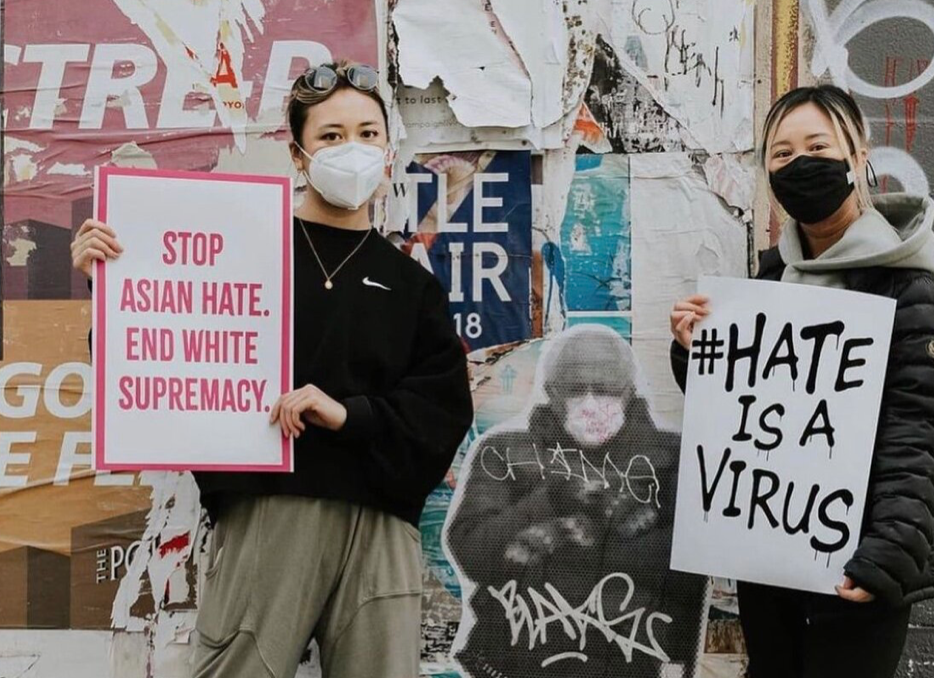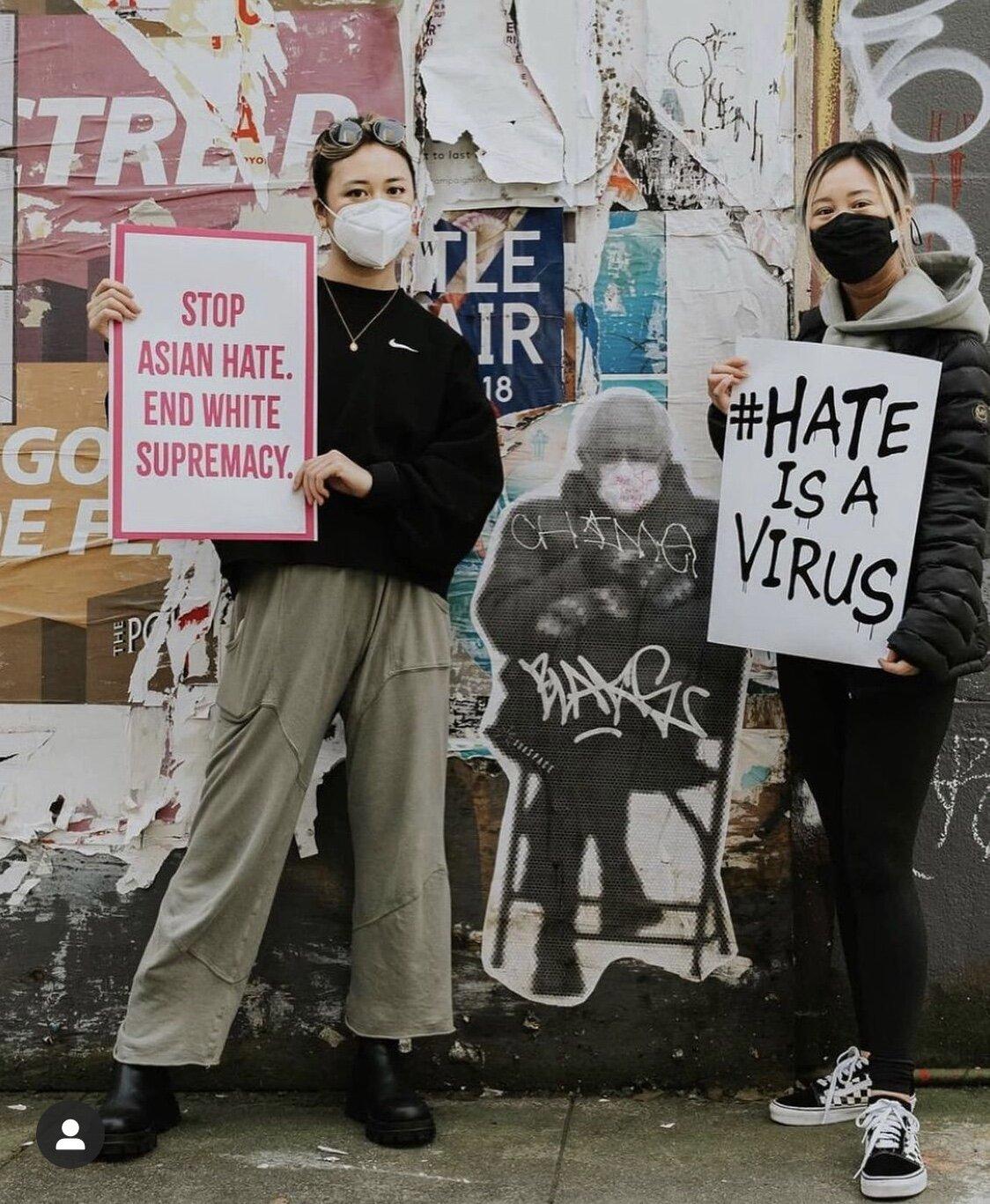The rates of anti-Asian hate crimes have increased by nearly 150% in the U.S. since the start of the pandemic and communities in Sonoma County are making efforts to show support towards Asian American and Pacific Islander (AAPI) communities.
In an article published by NBC, data conducted by California State University San Bernardino’s Center for the Study of Hate & Extremism is highlighted and states, “It revealed that while such [hate] crimes in 2020 decreased overall by 7%, those targeting Asian people rose by nearly 150%.”
Rohnert Park and Cotati recently addressed resolutions during their city council meetings on March 23 to show support towards AAPI communities.
Cotati’s City Council unanimously approved a resolution in response to recent violence and hate crimes. The resolution states, “The values of the City of Cotati include diversity that ‘supports honesty and integrity in an environment of collegiality and mutual respect,’ and compassion that includes ‘civic engagement opportunities that contribute to real world problem solving,’ and ‘empathy to identify the challenges and address the needs of others’.”
The local Rohnert Park Paper, The Community Voice, shared information about Cotati Mayor John Moore’s statement after the council meeting. Moore stated, “The Cotati City Council was clear and unanimous that racism against Asian-Americans, or against any Americans, has no place in society today.”
Despite Sonoma County having a small population of AAPI communities, less than 5% of the total population, local residents feel a strong need to have their voices heard.
Interim Director of the Educational Opportunity Program and the Preparing Underrepresented Educators to Realize their Teaching Ambitions Project at Sonoma State University, Khou Yang-Vigil, shared her feelings and thoughts on being a part of the small AAPI community within Sonoma County.
“That just shows that the community knows what’s going on and it shows their support.” Yang-Vigil stated, “Our issues are sometimes swept under the rug in the forefront. It’s important, we have to talk about it and we have to support each other. Specifically, in minoritized communities.”
Rohnert Park has also made efforts to not only inform local residents, but include SSU’s community in being involved.
During Rohnert Park’s city council meeting, Associate Vice President of Government and Regional Relations at SSU, Robert Eyler, accepted a certificate on behalf of President Judy Sakaki.
The certificate is a proclamation which denounces anti-Asian racism and violence. The proclamation states, “The City of Rohnert Park is committed to inclusion and advancing equity and justice for people of all races, nation origins, and ethnicities.”
After the following events, President Judy Sakaki, the first Japanese-American woman in the nation to lead a four-year college or university and current president at SSU, released an update to the school’s community on March 30. It reminds the community of their resiliency despite going through a year of hardships involving social injustices, financial struggles and obstacles faced with the pandemic.
Sakaki states, “Even then, Sonoma State has stayed confident. We have continued to strive for student success, continued to serve our community, and continued to aid in response efforts.”
After receiving this update, students who identify within the AAPI community appreciated the support, but felt as though the progression towards diversity and inclusion should actively resolve social injustices towards all people of color.
Katelyn Castro, a third-year political science major and active member of the Filipino American Association of Sonoma State University (FAASSU), shared her thoughts regarding the school’s response towards anti-Asian hate crimes.
“The most I have heard about the school itself talking about social injustices that have happened in the Sonoma State community is through an email just stating that they don’t agree with it and how they are trying to hold people accountable, which I think is a great start but I think they need to do better,” Castro stated.
Another student, Leah Vallespin, a second-year biology major and philosophy minor, shared her observations surrounding diversity and inclusion within the SSU community.
“Aside from FAASSU and other people of color (POC) clubs, I don’t know of any more resources for us to feel ‘safe’ and acknowledged,” Vallespin stated, “Even with cultural clubs, they tend to stay to themselves and it makes me sad because I want everyone to feel comfortable with each other and that includes non POC people as well.”
The Office of Diversity, Equity & Inclusion (DEI) at SSU offers ways to target social injustices and to provide spaces for students and faculty in need of support.
In an email interview facilitated with the Strategic Communications department, they shared current and upcoming resources aiming to aid the SSU community to support, resolve, and educate everyone with experiences of social injustices.
These include providing spaces that discuss Critical Dialogues Across Differences for students and faculty, directing all social injustice matters to the Office for the Prevention of Harrassment and Discrimination and planning to work with CheckIt, a program which focuses on creating student-led movements.
The DEI Office stated in the email, “We will continue to use this frame to address anti-Asian hate and to raise awareness on how to be a supportive ally. The DEI Office will also continue to use an anti-racism approach to address inequities by working to change policies that disproportionality impact our students of color.”
In concurrence with Sakaki’s Strategic Plan 2025, the DEI plans to align its core values to make systematic changes and equity-minded leadership.
In an email interview, Sakaki, via written communication through the strategic communications department, said, “First, let me thank all of our AAPI students for the resilience and flexibility they continue to demonstrate. These are challenging and isolating times, and I can imagine that everyone has had moments (and longer) when persevering feels difficult.”
“My best advice is to talk to someone; it is an act of personal strength to know you need support and to reach out. We are a community, and we are here to support each other,” Sakaki stated.





































